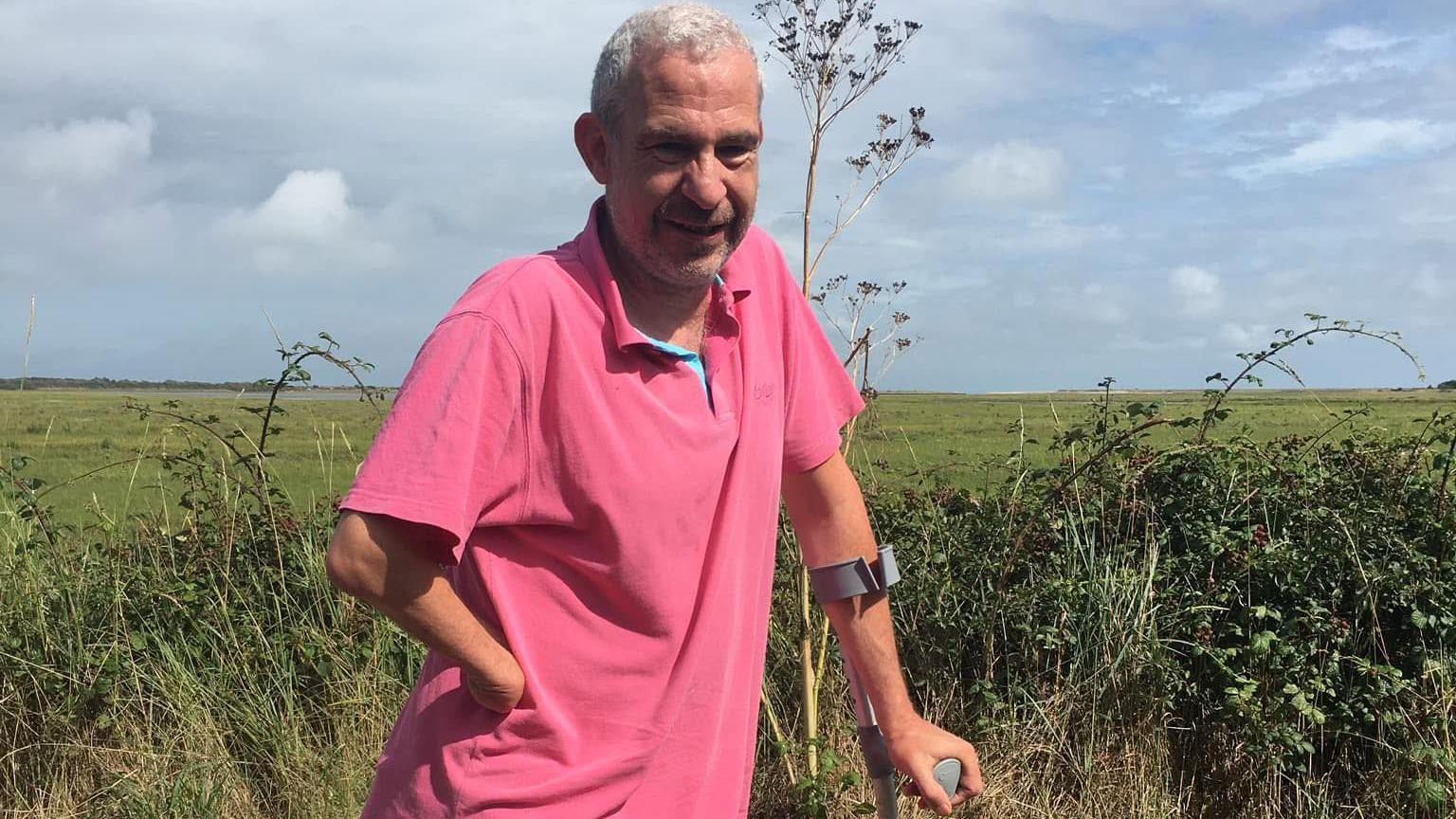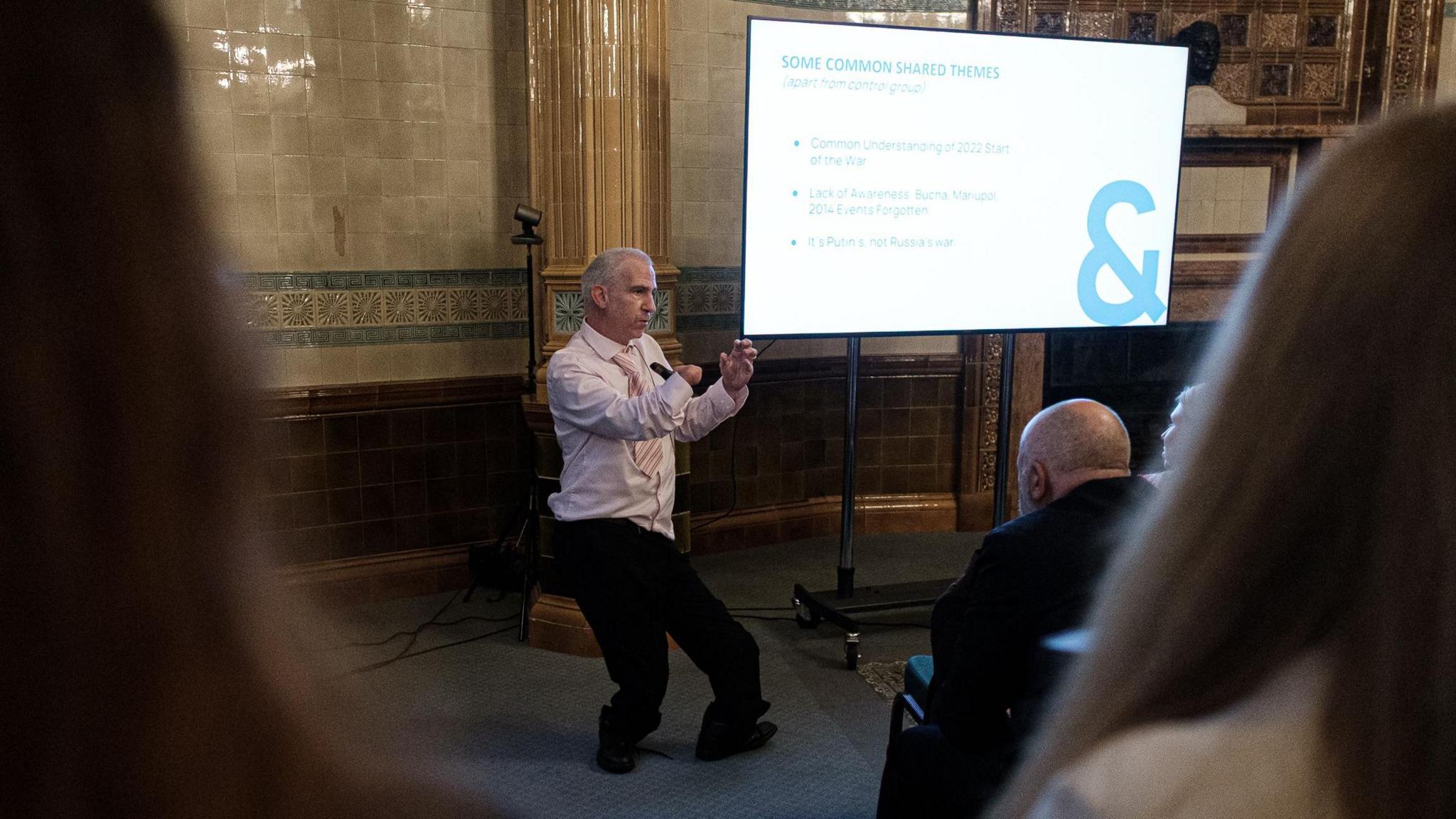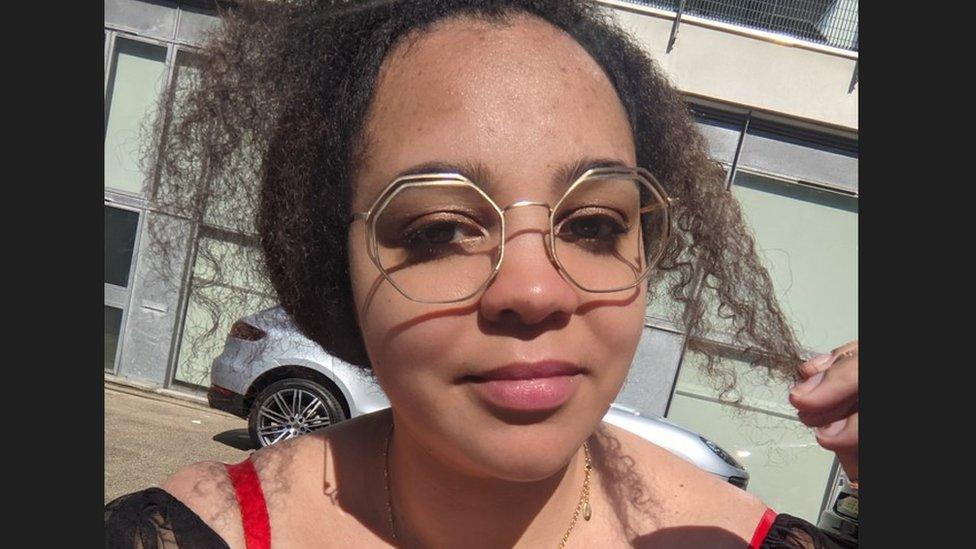Disability hate crime: 'It's the worst I've experienced it'

Steven Lacey warns hate crime against disabled people is on the rise
- Published
Steven Lacey had gone his whole life without being the target of hate crime, until this last year, in which he has already been abused four times.
The 52-year-old, from London, is physically disabled. He has a cleft hand, a missing fibula and a shortened tibia.
Steven says the last 12 months have been the worst he has experienced in terms of discrimination, and he says he thinks it is not going to improve any time soon.
The latest Home Office figures indicate disability related hate crime is down - but Steven's lived experience says otherwise.
Throughout his life, Steven has had to deal with stares, patronising attitudes, and being asked "what is wrong with you?", but he "never felt like it was at a hate crime level".
Last December, in Brentford, Steven suddenly found himself surrounded by a large group of 14 to 15 year olds who started filming and laughing at him.
"It was terrifying, it was a really intimidating situation. I didn't know if they wanted to rob me or attack me," he says.

Steven runs a cultural insight agency which specialises in disability and other marginalised groups
In February, while Steven was standing outside a hotel bar in Twickenham, a young man came up to him and asked if he was "legless".
Then, in May, while he was in the foyer of a high-end Manchester hotel, a man in his 30s came up to Steven and asked what hand he masturbated with.
Two weeks ago in Feltham, two older teenage boys approached Steven and asked if his parents were related, and if "you had a baby would it look like you?".
"The incidents have varied from moments of real unkindness to moments when I've felt physically threatened."
Steven has not reported any of the incidents to the police as he has no faith they will investigate.
"You just feel like you're going to become another statistic rather than that something will actually be done."
He feels that hate crime against disabled people is on the rise, pointing to an increasingly polarised Britain and a toxic narrative based on misconceptions about both disability and the benefit system.
"People think, 'they've got a blue badge, lots of entitlement, they are abusing the system and getting more than I am'," says Steven, who runs a cultural insight agency which specialises in disability and other marginalised groups.
"All these things layer up to this sense of ugliness. It's created this sense of outrage against disabled people."
Despite Steven's experiences, official Home Office figures show recorded disability hate crimes in England and Wales fell by 8% in the year to March 2025.
Offences recorded by the Metropolitan Police are not included in this year's figures due to changes in how the force records crimes.
Persistently unreported
Rose Simkins, chief executive of Stop Hate, which runs a helpline for victims of hate crime, says the official statistics do not paint the full picture.
"What we know is that people are experiencing more incidents, but it is not coming out in the figures," she says.
Echoing Steven, Rose says there is a pervasive feeling that the police are too busy to investigate hate crimes against disabled people and fear they will not be taken seriously.
"It's a huge thing to talk to the police and for many disabled people life is tough enough without adding that burden on top," she says.
"Sometimes police officers are embarrassed about asking people about their disability, so even if a crime gets recorded, it might not get the label of disability hate crime."
She points out disability hate crime can also manifest itself in indirect ways that go unrecorded, such as false allegations of benefit fraud.
"Once an allegation has been made it has to be investigated, so you can make somebody's life really horrendous and you can do it anonymously," she says.
'There is more to be done'
Rose says there is often also a lack of understanding around what constitutes a disability hate crime among victims themselves.
Disabled people may see the abuse as just another thing they have to put up with, a view often reinforced by well-meaning family and carers who tell them to ignore it.
"A lot of people think this is just life, there's nothing to be done."
A Metropolitan Police spokesperson told the BBC that officers received specialist training on reporting and investigating hate crimes targeting disabled people.
But, they said, "there is more to be done", adding they continue to work to "improve the service".
"We will not tolerate hate crime and want to empower anyone who experiences it to make a report, so we can take appropriate action," the spokesperson said.
Meanwhile, Steven is determined to push back.
"That's why I'm speaking out," he says.
"I'm a strong-willed person, I've got a successful job, but if that happened to someone else they might not leave the house again."
Listen to the best of BBC Radio London on Sounds and follow BBC London on Facebook, external, X, external and Instagram, external. Send your story ideas to hello.bbclondon@bbc.co.uk, external
Related topics
- Published7 October 2022
